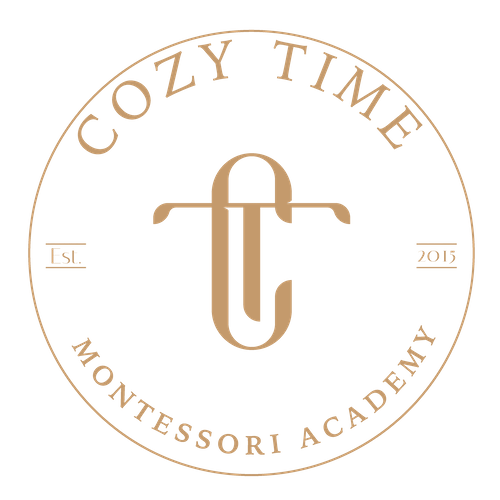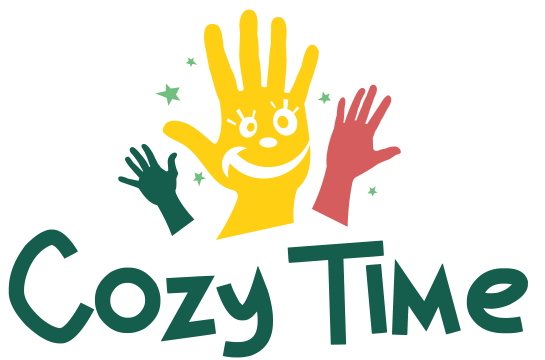Once Upon a Time in a Montessori Daycare
Let me share with you a personal story. As a parent, I remember the mixed feelings I had when I first decided to send my little one to a Montessori daycare in Toronto. Questions buzzed in my mind like bees in a hive – Was he ready? Was I doing the right thing? How could I prepare him for this new adventure? If you’re in the same boat, let me guide you through the journey I took. I quickly learned that preparing my child for his Montessori experience involved more than just logistics; it meant fostering a mindset of curiosity and independence. One of the most effective strategies was discussing Montessori education with kids, as it opened up conversations about their interests and the different activities they would encounter. This dialogue not only eased his transition but also sparked excitement for the opportunities that lie ahead.
Unveiling the Montessori Approach
The Montessori method, named after its founder Dr. Maria Montessori, is a child-centered educational approach. It respects the individuality of each child and encourages their natural curiosity. The environment, rather than a structured curriculum, guides the child’s learning. The method believes in aiding children to develop skills at their own pace, fostering a love for learning.
The Montessori Difference
Why does preparing for Montessori daycare require a different approach? Here’s why! Unlike traditional daycares, Montessori encourages self-directed activities, hands-on learning, and collaborative play. Children make creative choices in their learning, while the classroom and the teacher offer age-appropriate activities to guide the process. It’s more about learning than teaching, more about understanding than memorizing. This philosophy fosters independence and critical thinking, allowing children to thrive in a supportive environment. By embracing the montessori approach in early education, caregivers nurture a love for learning that lasts a lifetime. Ultimately, this method prepares children not just academically, but also socially and emotionally, equipping them with the skills necessary for a successful future. This method fosters independence and critical thinking skills, preparing children for future academic challenges. By embracing the Montessori approach to kindergarten readiness, children develop a love for learning that lasts a lifetime. Furthermore, the emphasis on social interaction and practical life skills helps them navigate their environment with confidence and curiosity.
Essential Montessori Principles
Understanding the key principles of the Montessori approach can help you align your home environment better, facilitating a smoother transition for your child. Here are a few:
- Respect for the Child: Montessori classrooms provide an environment where children feel respected, safe, and free to express themselves.
- Role of the Prepared Environment: A Montessori classroom is meticulously designed to entice the child to explore and learn.
- Montessori Materials: Unique learning materials stimulate the child’s senses, leading to self-directed learning.
- Self Education: Children are encouraged to educate themselves through exploration and play, fostering self-reliance.
The Montessori Advantage
Your decision to choose a Montessori daycare in Toronto is a great one, and here’s why. Children in Montessori programs are often more adaptable. They learn to work both independently and in groups. These children tend to exhibit better social behavior and have a deeper understanding of concepts. They develop a lifelong love for learning and a healthy curiosity that helps them grow into well-rounded individuals. These are just a few of the many benefits that a Montessori daycare has to offer.
In conclusion, preparing your child for a Montessori daycare is not just a process but a journey that you embark on together. It’s about understanding the Montessori principles and aligning your home environment with them. It’s about opening your child’s mind to the joy of learning. If you’re in Toronto and want the best licensed Montessori Center for your child, consider Cozytime Child Care. Make this transition a memorable one for both you and your child. For more information, contact us at 416-602-3811. As you prepare for the first days at Montessori daycare, remember that patience and encouragement will help ease any initial anxieties. Engage in conversations about what to expect, and remind your child that exploring new environments can be exciting and rewarding. This foundation of support will nurture their confidence and eagerness to learn as they embark on this new adventure. Embracing the Montessori approach at home can set the foundation for your child’s success in their new environment. To help facilitate this transition, consider utilizing some montessori classroom involvement tips, which can enhance your child’s adaptability and promote their natural curiosity. Remember, each small step you take reinforces the values of independence and respect that are central to the Montessori philosophy.
Preparing Your Child for Montessori Daycare: A Personal Journey
One winter morning in Toronto, I found myself packing a small suitcase for my three-year-old daughter, Emily. It wasn’t a vacation, but something equally momentous – her first day at a Montessori daycare. The process wasn’t easy, but by following a few practical steps, we made the transition smoother. I want to share these steps with you, hoping they will ease your journey as well.
Start Cultivating Independence
One fundamental tenet of Montessori learning is fostering independence, even in toddlers. As a mother, I started by involving Emily in simple household chores. She began helping me set the table, arrange her toys, and dress herself. Gradually, these activities became part of her daily routine, preparing her for the self-directed learning environment of her daycare. Encouraging independence doesn’t mean leaving your child alone; it’s about offering them safe opportunities to learn, grow, and discover their abilities.
Establish Routines and Consistency
Consistency is a cornerstone of Montessori education, helping children understand their world and feel secure. In our home, we incorporated structured routines. These included consistent meal times, playtimes, and bedtime rituals. By having a predictable schedule, Emily started understanding the concept of time, sequence, and order – all of which are integral to Montessori education.
Introduce Montessori Materials at Home
Another crucial step was introducing Montessori materials at home. I replaced Emily’s conventional toys with Montessori-inspired ones. These toys, designed to foster practical life skills, sensorial exploration, and cognitive development, quickly became her favorites. We also set up a small Montessori-inspired area in her room, which included activities such as sorting shapes, threading beads, and pouring water. These activities, while fun, helped her develop fine motor skills, hand-eye coordination, and focus.
Visit the Daycare with Your Child
Before Emily’s first day at the daycare, we paid several casual visits to the place. This allowed her to familiarize herself with the new environment, reducing the potential shock or resistance on the first day. She met her teachers, explored the classrooms, and even played with some of the Montessori materials. These visits were instrumental in making her comfortable and excited about her new learning journey.
Continuous Conversation with Your Child
Throughout this process, communication remained key. We engaged in daily conversations about the upcoming changes, the fun activities she would be doing, and the new friends she would make. This ongoing dialogue helped alleviate her fears and made her more receptive to the transition.
Common Challenges and How to Overcome Them
Despite all the preparations, challenges are inevitable. Emily had her share of tough days, where she resisted going to daycare or had difficulty settling in. But with patience, reassurance, and continuous communication, we overcame these hurdles. Remember, it’s okay to take a step back, reassess, and adjust your approach. After all, every child is unique, and what works for one may not work for another. The most important thing is to ensure your child feels loved, supported, and confident throughout this transition.
In the end, Emily’s transition to Cozytime daycare was a success. She blossomed in the Montessori environment, and we saw a significant improvement in her independence and confidence. If you’re in Toronto and are considering a Montessori daycare for your child, feel free to reach out at (416) 602 3811. We’re here to help make your child’s transition as smooth and positive as possible.

